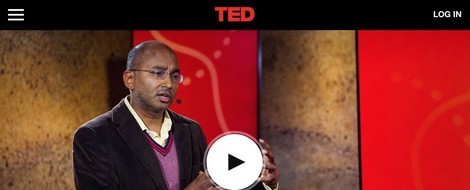Your podcast discovery platform
Curious minds select the most fascinating podcasts from around the world. Discover hand-piqd audio recommendations on your favorite topics.

piqer for: piqd Boom and bust Climate and Environment Global finds Globalization and politics Health and Sanity Technology and society Doing Good Deep Dives
Malia Politzer is the executive editor of piqd.com, and an award-winning long-form journalist based out of Spain. She specializes in reporting on migration, international development, human rights issues and investigative reporting.
Originally from California, she's lived in China, Spain, Mexico and India, and reported from various countries in Africa, Europe and the Middle East. Her primary beats relate to immigration, economics and international development. She has published articles in Huffington Post Highline, The Economist, The Wall Street Journal, Vogue India, Mint, Far Eastern Economic Review, Foreign Policy, Reason Magazine, and the Phoenix New Times. She is also a regular contributor to Devex.
Her Huffington Post Highline series, "The 21st Century Gold Rush" won awards from the National Association of Magazine Editors, Overseas Press Club, and American Society of Newspaper Editors. She's also won multiple awards for feature writing in India and the United States.
Her reporting has been supported by the Pulitzer Center on Crisis Reporting, The Institute For Current World Affairs, and the Global Migration Grant.
Degrees include a BA from Hampshire College and MS from Columbia University Graduate School of Journalism, where was a Stabile Fellow at the Center for Investigative Journalism.
Video/Ted Talk On Why Capitalism Is Actually An "Operating System" (With Troubling Conclusions)
In this rather troubling Ted Talk, Bhu Srinivasan, author of Americana: A 400-Year History of American Capitalism, argues that we need to reexamine how we think and talk about capitalism: He argues that, rather than being seen as an ideology, capitalism should be seen like an operating system—one that needs constant patching and upgrades—to stay relevant and innovative.
As an example, Srinivasan talks about property rights and how, until recently, there was no reason to draw property boundaries in the sky—which is likely to soon change, with the advent of delivery services via drone. (For example, how close should a UPS drone come to your roof to drop a package?)
Why is this relevant? Because the rapid innovations created by technology require flexible, rapidly responding regulators, and Srinivasan worries that ideas of how capitalism is supposed to work might impede sound policy decisions. For example, Srinivasan believes that within the next 10 years, we'll see that communist-led China will run the highest-growth economy in the world. Which, he argues, will create an identity crisis for the United States, as there's the assumption that free markets must go hand in hand with individual liberties.
China, he believes, is challenging that assumption. The Chinese government can easily and unilaterally impose new regulations that adapt to new economic opportunities (for example, new regulations for drones), while these decisions take much longer in a democracy.
While he doesn't explicitly take his argument to its logical conclusion, the unsaid implications of his talk are troubling. Is it really an OS "upgrade" to allow a government, in the name of "progress" to make unilateral decisions without first engaging in democratic debate? And if we don't, are the economies of countries with more autocratic governments destined to overtake those of countries led by Western democracies? Whether or not you agree, it's worth the six minutes it takes to listen.
